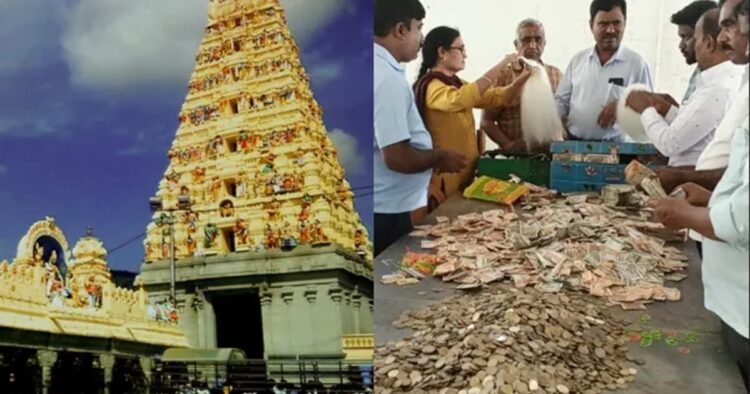A contentious bill in Karnataka has stirred up a political storm, with the state government under Chief Minister Siddaramaiah facing criticism over its proposal to impose taxes on temple revenues. The ‘Karnataka Hindu Religious Institutions and Charitable Endowments Bill 2024’, passed by the ruling Congress-led government, mandates that temples with substantial incomes contribute a portion of their earnings to the state coffers.
Under the provisions of the bill, temples generating revenues exceeding Rs 1 crore would be subject to a 10% levy, while those earning between Rs 10 lakhs to Rs 1 crore would be taxed at 5%. This move has ignited a fierce war of words between the Congress and its main adversary, the Bharatiya Janata Party (BJP).
The BJP has accused the Siddaramaiah administration of pursuing “Anti-Hindu” policies through the implementation of this bill. BJP’s state president, Vijayendra Yediyurappa, alleged that the government’s primary motive behind this legislation is to replenish its dwindling financial resources.
Yediyurappa voiced concerns over the allocation of temple funds, arguing that the contributions made by devotees should be solely directed towards the maintenance and development of the temples. He further questioned the selective scrutiny of Hindu temples, calling for a fair examination of revenues across all religious institutions.
In response, Congress leaders have defended the bill, emphasizing that similar provisions have existed since 2001. Karnataka government minister Ramalinga Reddy refuted BJP’s accusations of anti-Hindu bias, asserting that the Congress has consistently safeguarded Hindu interests throughout its governance.
Reddy went on to criticize the BJP for engaging in divisive religious politics, accusing them of prioritizing political gains over genuine concerns for temple revenues. He pointed out periods of BJP governance where temple taxes were also imposed, questioning their commitment to Hindu welfare.
As parties gear up for upcoming elections, the outcome of this controversy remains uncertain, with the electorate closely observing the handling of temple finances and the rhetoric employed by political leaders















Comments